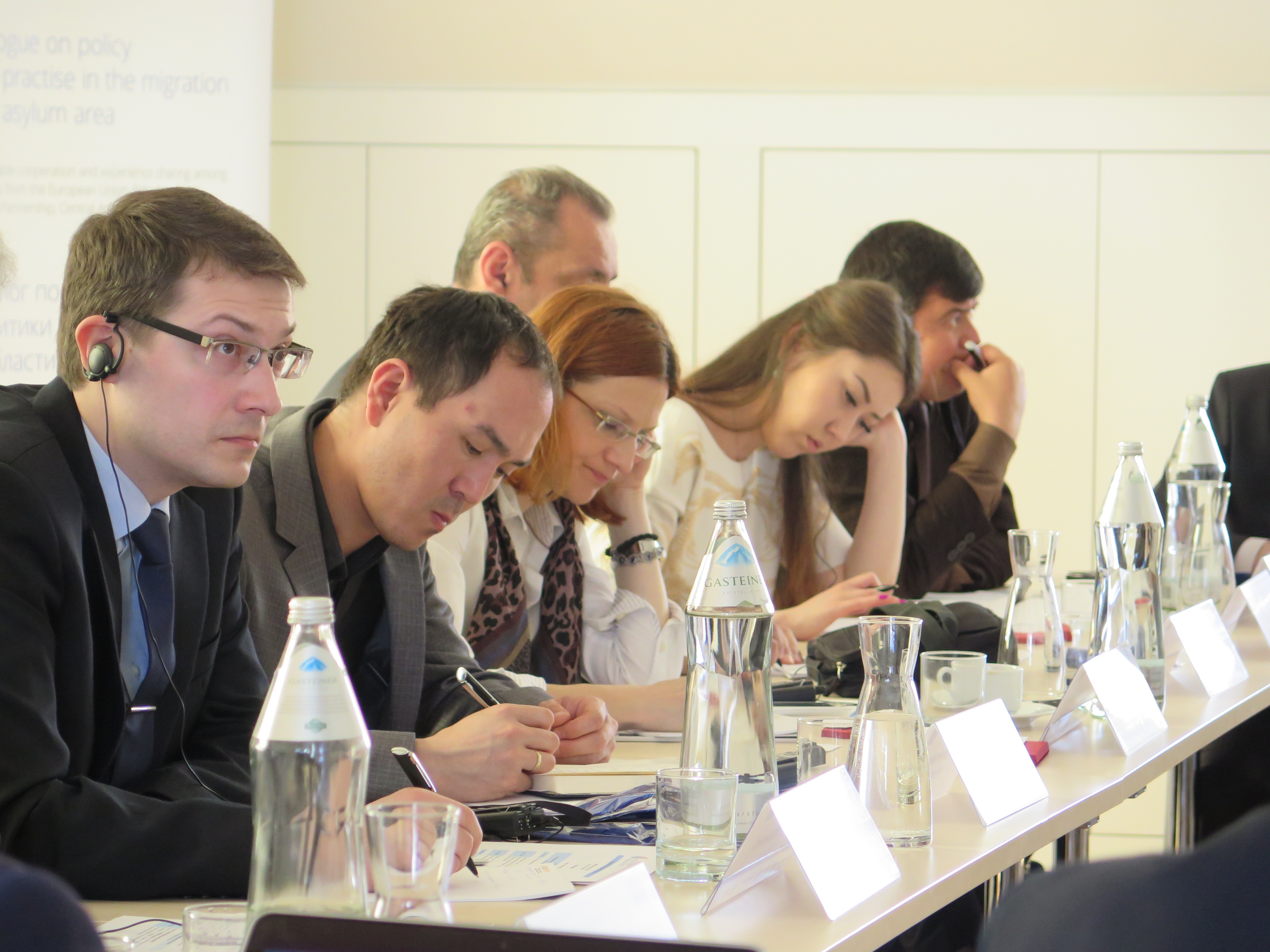The PP TI Study Visit took place on 10-12 April 2017, gathering representatives of 18 participating states in Vienna. During the introductory session at ICMPD, participants expressed their satisfaction with the opportunity to visit and get to know the national policies and practices of Austria - an important destination and transit country with regards to both the Balkan and Mediterranean migration routes.
The first intervention belonged to the Slovak Ministry of Interior, which introduced participants to the Memorandum of Understanding (MoU) concluded between Austria and Slovakia in 2015 with the aim of enabling the temporary accommodation in Slovakia of asylum seekers applying for asylum in Austria. A total of 1228 asylum seekers were accommodated by Slovakia but Austria nevertheless remained responsible for their asylum procedure and social benefits. The MoU was concluded for a period of two years with the further way forward currently being established. The presentation also referred to the humanitarian transfer of refugees in the framework of global resettlement programmes.
Next on the agenda was a visit to the Austrian Federal Ministry of Interior where the issue of human trafficking was addressed in detail. Sexual exploitation and exploitation of beggars are the most frequently encountered phenomena in this respect. The delicacy of differentiating between victims and perpetrators was pointed out.
With regards to tackling human trafficking and smuggling the important role of international cooperation was highlighted and exemplified through the recent arrests of nearly 50 human smugglers in the EU and Turkey. Thanks to the real-time intelligence work, which enhances the immediate notification of law-enforcement partners in other countries, the overall number of human traffickers declined from 1.100 in 2015 to 250 in 2016. The Europol SIENA system (Secure Information Exchange Network Application) allows sharing all necessary information within three hours. As a result, the traffickers are often arrested within 24 hours. Authorities are advised not to await media reports on a given incident but to act immediately. Interpersonal relations in the rapid reaction to crime were underlined. The Joint Operation Centre in Vienna serves international cooperation in a way that foreign law enforcement organs can receive executive powers in Austria, albeit only under Austrian supervision and according to the national law. The prosecution can build on evidence from other countries. Still, further enhancing international investigative cooperation remains a top priority. Another priority is establishing a common European database on social benefits in order to prevent asylum seekers from simultaneously receiving money in various countries.
The Department for Asylum then provided a short overview on the Common European Asylum System (CEAS) and some of its inherent challenges. The ever more prominent issues of relocation and resettlement were also discussed as a potential safe and legal way to entering Europe. Resettlement programmes are to be further extended as preventive policies are perceived overly positive since 2015. UNHCR features the most effective selection process as it prioritizes the most vulnerable groups as well as family reunification.
The second day entailed a visit to the State Printing House, which is responsible for the issuing of identity documents such as passports and driving licenses. Participants were guided through all stages of the production process and had an opportunity to ask additional questions. Later on, the group was welcomed by the Police at the Vienna International Airport. After a short introductory presentation, participants received a tour through the competent police unit as well as the airport operations centre.
Day 3 featured a visit to the International Anti-Corruption Academy (IACA) where participants were introduced to the structure, history, objectives and activities of the institution. Participants were particularly invited to the Training for nationals of the Eurasian Economic Union Member States co-funded by the Russian Federation and taking place on 2-4 October 2017. In the afternoon, participants were hosted by the Organisation for Security and Cooperation in Europe (OSCE) and learned about its migration related activities. The visit also entailed interventions on behalf of the European Commission Representation to Austria and IOM’s Regional Office for Eastern Europe and Central Asia.
During the concluding feedback session all participants expressed their gratitude to the host country and the organisers and satisfaction with the Study Visit and its format.

